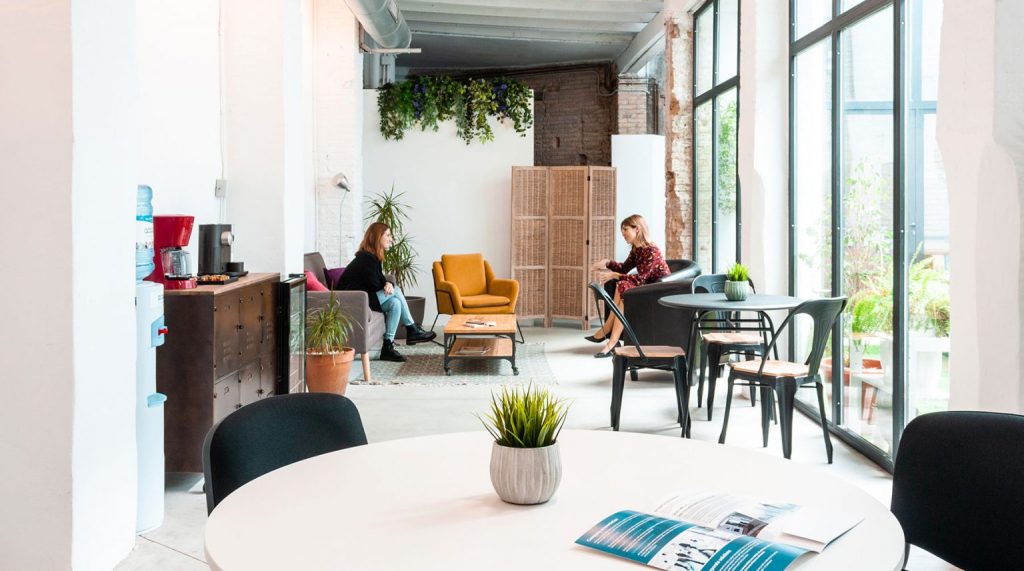
Table of Contents
The situation in the world is constantly changing. A few years back, nobody could have imagined a pandemic would put almost the entire globe on hold. Still, it happened. With so much instability, it is crucial to find a way to generate passive income. One of the best ways to do this is through rental homes. Renting your property has many benefits – it gives you more security and freedom in your financial life and reduces the fear of the future.
Those who wish to become landlords have many options. Each has its advantages and disadvantages, so it is important to do proper research. But don't worry – we have got your back! With our help, find out the differences between long-term and monthly rentals, and learn which is the better choice for you! We talk about long-term rentals vs monthly rentals.
Characteristics of long term rentals
Stability of a long term rental agreement
Stable income expectation, allows landlords to effectively calculate and rely on their expected income across an extended period and with a higher level of certainty than can be provided by any other type of rental.
Easy management
Short-term and corporate rentals usually require the landlord or the cleaning crew to once every while check-in with the property. With long-term rentals, you don't have to do it, but you don't have either the option to do it, which can be also a disadvantage. Years may pass before you step into your rental again.
More risk of property damage
There is a bigger chance of damage when renting out a property for a longer time. Even if the tenants are tidy, it is almost inevitable to create wear on walls, appliances, and floorings. The risk becomes even bigger if they have furry friends or young children.
Although most contracts include a damage clause, it doesn't take away the hassle which comes with fixing the house.
Fixed rental income
Long-term rentals typically come with a level of consistency. While it has some benefits, there are a couple of drawbacks that require your attention too. With long-term rentals, usually, there is no room for flexibility. That means you can't take advantage of 'high season' or holidays and special events when rates can skyrocket.
Of course, you can always steadily raise the rent for long-term rentals, but it is most often done over several years. You must also take into account whatever contract you have with the tenant before making any moves.
Higher costs for maintaining in the long term
As long as you have a responsible tenant, that shouldn't cause too many issues. But if they aren't the cleanest, that can give you quite the headache. Once the tenant moves out, you may have to do a full repair. That, of course, negatively impacts your chances of a profit.
Payment risks
Especially in Spain tenants are very much protected by the government. If a tenant has payment problems there is little you can you do as an owner. Get ready for long procedures.
Not enough flexibility
Perhaps the biggest downside of long-term rentals is that you can't use your property because it is booked for months and even years. With short-term and monthly rentals, it's a different story. If – at some point – your apartment or house is empty – you can use it for your own needs. What is the fun of owning a property if you never get to enjoy it? With corporate rentals, you have the opportunity to decide in advance when your property is available and in which months it is booked for your private use.
Characteristic of monthly rentals
Higher-income potential
Typically, monthly rentals demand a higher rate than long-term rentals. Landlords usually charge more for month-to-month deals to cover any probable risks. Corporate rentals may have twice the potential income as long-term rentals. With less hassle, you get to earn more money.
Better tenants profile
Almost any landlord will agree that finding responsible and tidy tenants is always a challenge. But – if you rent out your property every month – you will most likely come across 'corporate' tenants, which are always the better option.
Since nowadays many companies operate internationally, they must send their employees on business trips. Some must stay abroad for longer periods. For them, it is more convenient to live at monthly rental properties, especially furnished ones.
There are many advantages of monthly rentals for landlords. Relocation companies play an important role in the process. Landlords who prefer a hands-off approach will find corporate month-to-month tenants to be the best.
Since they are usually staying for business trips, they most likely won't do any damage to your property (after all – their reputation is at stake). These kinds of tenants require less management, which means there is less hassle and also expenses.
Avoid rental payment issues
There is nothing more annoying than dealing with a tenant who misses payment deadlines or doesn't pay at all. If you are deciding between long-term rentals vs monthly rentals, month-to-month rentals offer much more benefits for landlords.
Since monthly rentals are mostly occupied by corporate tenants, it is typically the company that covers all expenses. For you – as a landlord – that means less stress and fewer payment issues. When renting your property through a relocation company, you have to deal with even fewer responsibilities because they usually handle both check-ins and check-outs.
Less unpredictability
In many cases, corporate tenants stay in a specific country or city for fixed terms. Most likely, they are required to fill an employment position for a fixed period, for example, one month, six months, one year, and so on. For this reason, landlords have to deal with less unpredictability.
It is quite uncommon for a corporate tenant to break their lease earlier than expected or to wish to stay for a longer time. Knowing these details, landlords have more flexibility to plan the availability of their property.
Renting out your property comes with its challenges, but don't let that scare you! There is no right or wrong answer when it comes to the best type of rentals. It all depends on your needs and wishes. Month to month rentals, however, are a great option that offers more flexibility, higher income, and fewer hassles.
If you wish to get your property in the rental business, we will be happy to assist! Our team members will gladly answer any questions you may have, so don't hesitate to contact us.
Temporary rentals by Globexs
Short term rentals versus long term rentals: Monthly rentals combine the advantages of traditional long-term rental with short-term holiday rentals benefits. Monthly rentals refer to leasing a furnished apartment, flat, or house to expats, companies, or business travelers, for a short period, from 1 month to a maximum of 11 months.
By renting your property to business travelers and companies with Globexs, there is no non-payment risk due to the tenant profile. You, as the landlord, keep control over your house, deciding the dates you want to rent your property.
At Globexs we take care of the entire rental process. We filter the client’s profile and we manage the rental contract, drawn up by our legal department. You will get worldwide visibility through the Globexs website and our partners by listing your property with us.
Corporate housing is ideal for those looking for an in-between lodging option. Digital nomads, business travelers, and expats,… are all looking for a temporary rental. As an owner, you will be renting out your flat to companies and business travelers.






